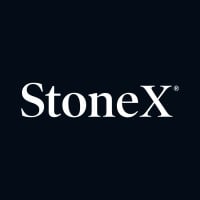Established in the mid-1970s, the U.S. Commodity Futures Trading Commission (CFTC) is the go-to authority for American exchange-traded derivatives. Established by the Commodity Futures Trading Commission Act of 1974, the CFTC is the regulatory body of U.S.-based futures and options markets.
Exchanges, commercial banks, clearinghouses, brokers, and traders are all subject to CFTC’s oversight. If you’re actively trading futures or options on markets such as the Chicago Mercantile Exchange (CME) and Chicago Board Options Exchange (CBOE), then rest assured that the CFTC is watching.
Mission And Duties
The role of the CFTC is relatively straightforward, as affirmed in its mission statement:
The mission of the CFTC is to foster open, transparent, competitive, and financially sound markets. By working to avoid systemic risk, the Commission aims to protect market users and their funds, consumers, and the public from fraud, manipulation, and abusive practices.
In order to accomplish this mission and promote market integrity, CFTC staff conducts several central official duties on an ongoing basis:
- Policing the derivatives markets for various abuses
- Overseeing key individuals and institutions, including futures commission merchants (FCMs) and derivatives clearing organizations
- Regulating the active trade of ag, energy, metal, debt, stock index, currency, and interest rate products
In addition, the 2010 Dodd-Frank Wall Street Reform And Consumer Protection Act gives the CFTC authority over the $400 trillion swaps market. Simply put, if it’s a derivative product, then it falls under the CFTC’s jurisdiction.
Organizational Format
The U.S. Commodity Futures Trading Commission is part of the federal government. It has five commissioners, each appointed by the president and approved by the Senate. No more than three commissioners can have the same political affiliation, and the president designates the CFTC chairman.
The job of preserving the integrity of America’s markets is a big one. To accomplish this task efficiently, the CFTC is broken into four divisions, each with a unique collection of responsibilities:
- Clearing and risk (DCR): Tasked with oversight of dealers, large traders, and futures commission merchants (FCMs) involved in the derivatives clearing process.
- Enforcement (DOE): Administers the Commodity Exchange Act through investigating suspected violations and prosecuting offending parties.
- Market oversight (DMO): Promotes transparent and fair markets though monitoring derivatives trading platforms and swap data records.
- Swap dealer and intermediary oversight (DSIO): Oversees the registration and compliance of U.S. derivatives exchanges and National Futures Association (NFA) members. In addition, the DSIO addresses the swap industry under the authority outlined in Dodd-Frank.
Another facet of the regulatory bureaucracy are the 10 offices used to address special issues facing the CFTC. Here are the 10 offices, with their self-explanatory titles and acronyms:
- Chief Economist (OCE)
- Data and Technology (ODT)
- Executive Director (OED)
- General Counsel (OGC)
- Inspector General (OIG)
- International Affairs (OIA)
- Legislative Affairs and Intergovernmental Affairs (OLIA)
- Office Of Minority and Women Inclusion (OMWI)
- External Affairs (OEA)
- Whistleblower Office (WBO)
The U.S. Commodity Futures Trading Commission Is a Good Thing
Like most financial regulators, the CFTC is often viewed as having an overreaching and negative influence on the markets. While there’s certainly an argument to be made against legislation such as Dodd-Frank, the CFTC does provide a degree of consumer protection. Without a formal and official governing body, instances of market manipulation and outright fraud would likely increase exponentially.
An ideal place to begin your journey into futures and options is through securing the services of a reputable brokerage firm. For more information on the CFTC, or the security and integrity of the derivatives marketplace in general, reach out to a certified broker at StoneX today.

